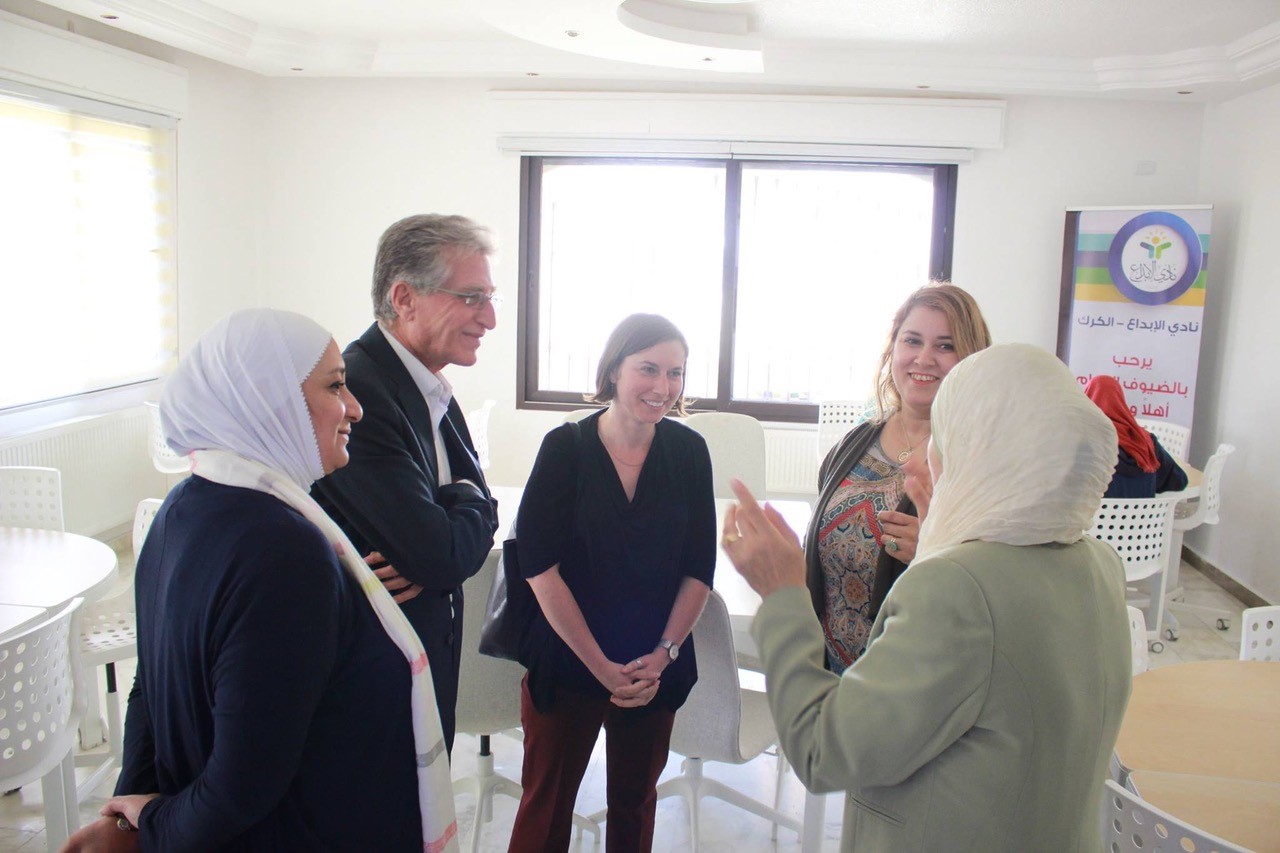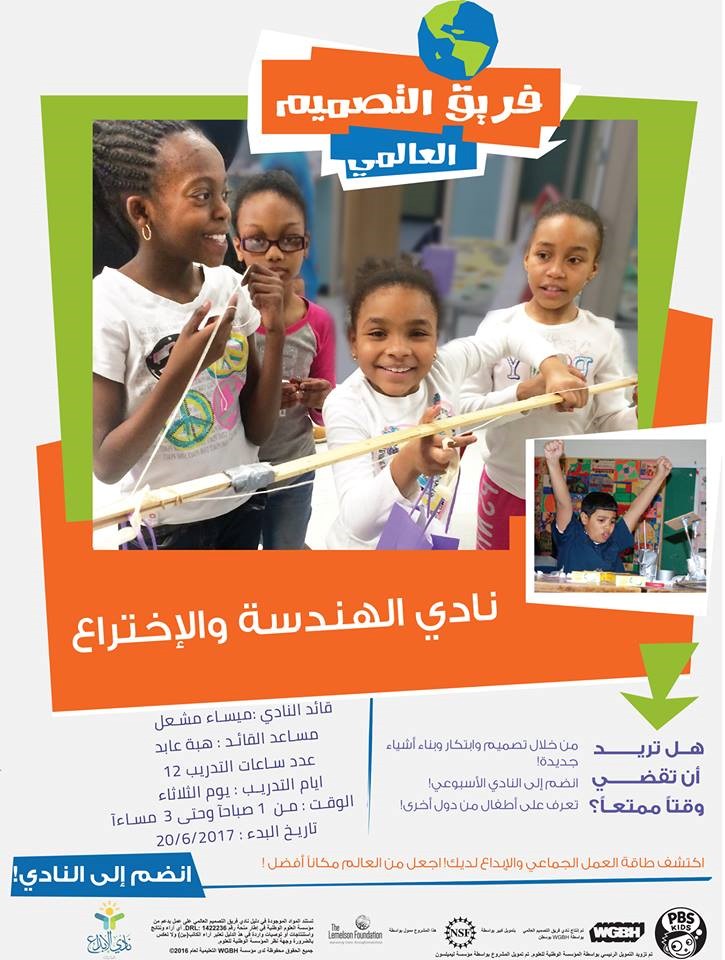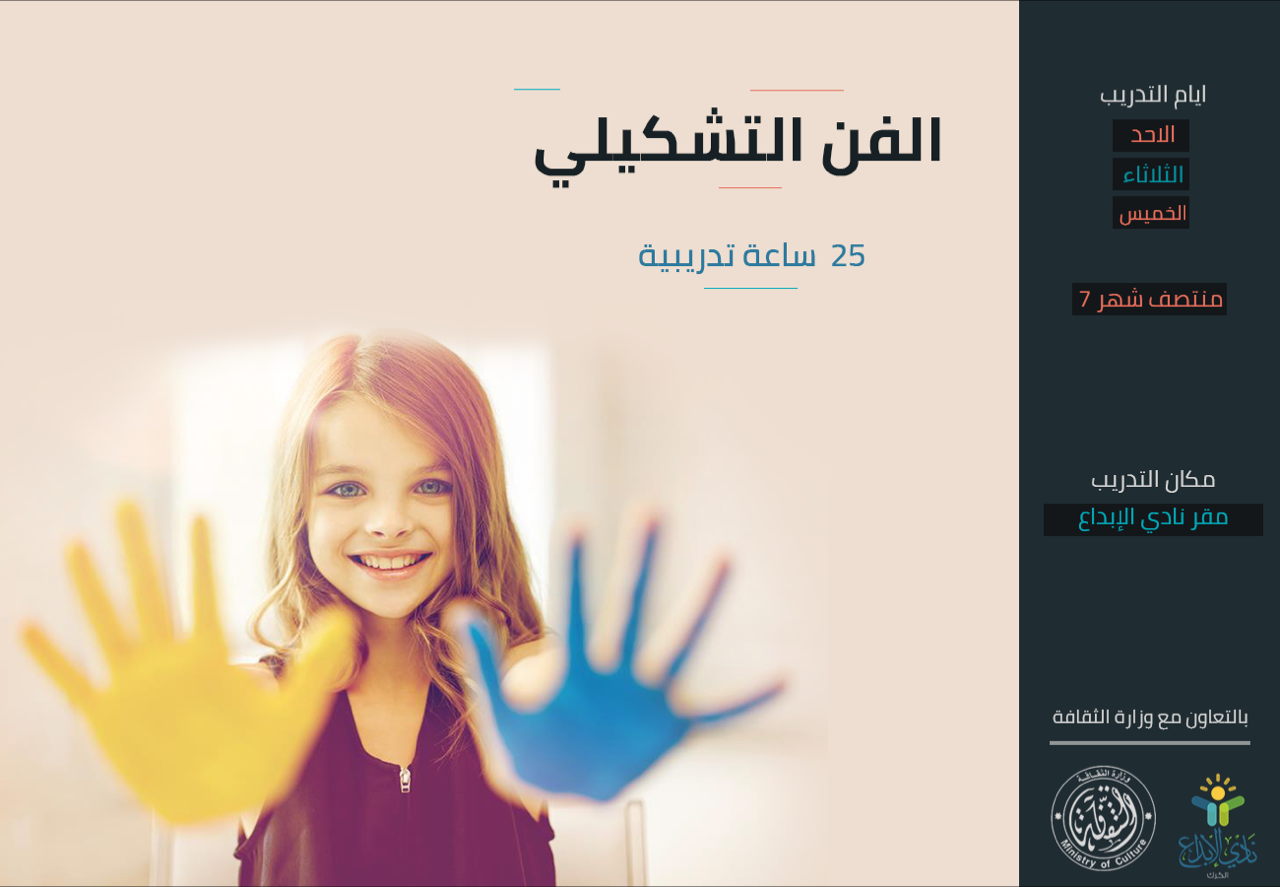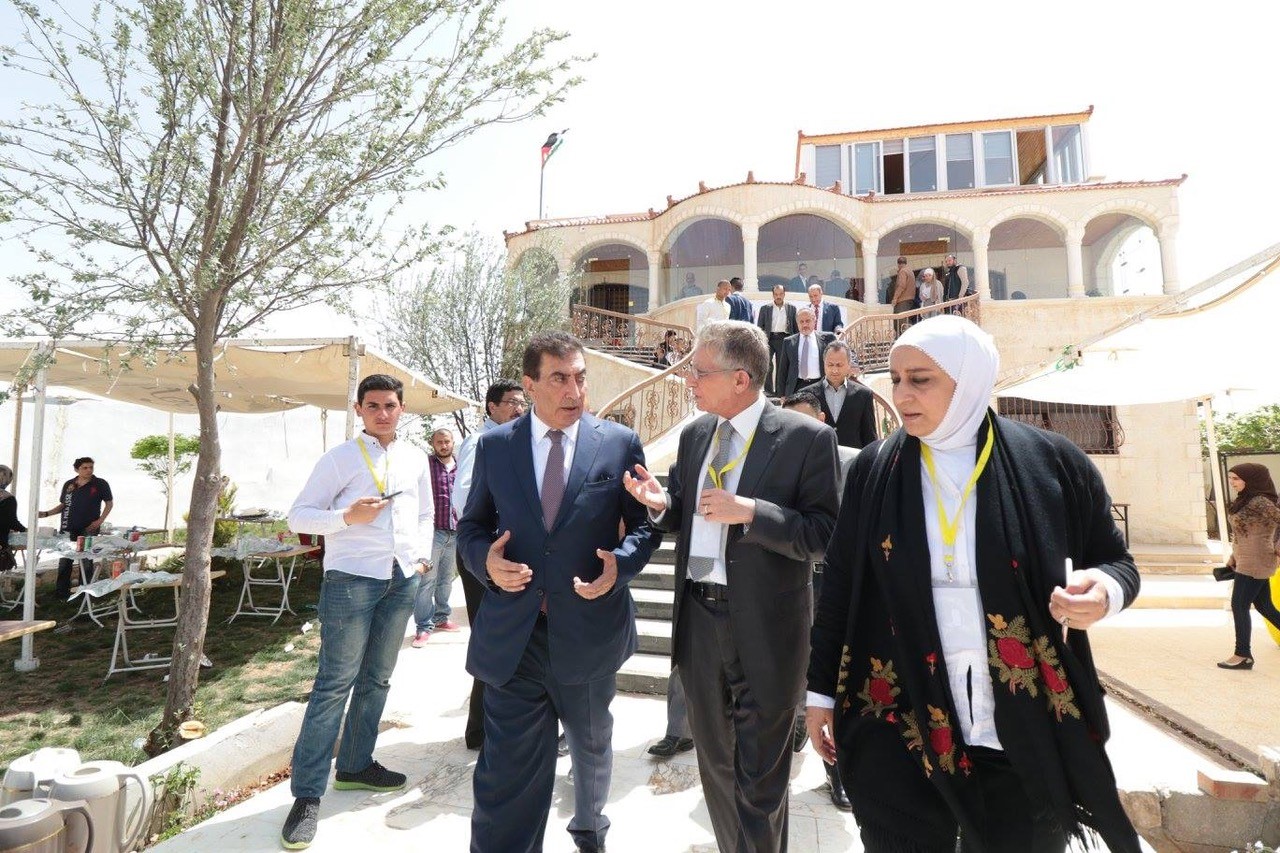There was an instant in agricultural engineer Husam Turawaneh’s life when everything in his world changed totally: the death of his beloved son in a car accident. Snatched away from his loved ones just as he was about to embark on a course at one of the top universities in America, the young man’s tragic death was to inspire his father to give to others in order to heal his own pain.
Turawaneh decided to try to give every child in Karak, Jordan the chance to excel in school as his son Ahmed had done. Ahmed had exhibited outstanding skills in technology and programming and was supported by his parents from the age of 12 to grow and nurture this talent. Eventually Ahmed was enrolled in Jordan’s prestigious Royal School for developing creative children’s talents, the King’s Academy. In the days after his son’s death, Turawaneh took the life-changing decision to turn his grief into good.

He says, “I realised that a way to bring about true social change is to invest in the future of creative children.” So just a few days after his youngest son passed away, Turawaneh chose to dedicate the rest of his life to spreading his son Ahmed’s message by creating the ‘Creative Club’ in 2010 – a not-for-profit academy that allows children discover and develop their latent, unique talents.
The club, which offers all its programmes at no charge, connects students with mentors and experts in various fields, funds their projects and engages them in regional and international contests and conferences.

Turawaneh says, “I realised that to take care of their potential, Jordan’s children needed more. The national education infrastructure was lacking and the system needed more support. Jordan lacks educational resources and our schools are not very developed.”
He adds, “I believe that you need an atmosphere to be creative and you need creative people creative around you to help you discover your own creativity.”
Traditionally, Jordan has a legacy of rigid rote-learning style curricula with little room for creativity. Year on year, Turawaneh has been intent on working to change this mindset. “The Jordanian teachers and people are very conservative but we have managed to gain their trust to the point where the community has trusted us enough to work with them.

“They have even trusted us enough to allow both boys and girls to work in the same room together, which is a huge success and step forward.”
Creative Club’s head office is based in Turawaneh’s hometown of Kerak, 150 kms from Jordan’s capital Amman. The academy offers support, guidance and mentorship in areas such as writing, music, robotics and art, as well as life and business support skills, such as communication and entrepreneurship. The academy supports children from 5 upwards to post-university graduates.
The club adopts a "non-traditional" method for encouraging creativity, as it does not take into account students' academic record, intelligence level or performance in personal interviews.
Turawaneh says the Creative Club offers an environment that is intended to empower children and allows others to discover their talents at an early age. He adds, “I believe in getting to children early to develop their talents. We have a lot of programmes in place now, including theatre, film-making and community service. Many young people have discovered a lot of things about themselves and achieved a lot.”

The Creative Club particularly targets children from low socio-economic backgrounds. The ambitious supplementary education scheme has now enrolled over 6,500 children over the years and continues to grow and be supported by a network of government and charity grants. In time, Turawaneh hopes to roll the Creative Club out as a franchise across Jordan and the Levant.
Recent successful alumni include a female student of nanotechnology, who has since been recruited by the United Nations, as well as a clutch of global patents and students who have so far won 18 awards at international levels, including through programmes backed by chip company Intel.
Turawaneh stresses, “The best learning is achieved through fun activities and interactive learning and workshops. This is the way to engage children so they can discover their creativity and find out what they are good at.”
Presently around 70 per cent of the Jordanian population is younger than 30. This unique demographic offers the potential for vast creative and economic power. However, due to limited natural resources, the Levant countries remain some of the smallest economies in the Middle East. More than 14 per cent of Jordanians live below the poverty line. Turawaneh’s Creative Club aims to harness the latent power of Jordan’s youth and allow them to grow and flourish, whatever their background.
"We aspire to establish a more specialised academy that graduates trainers and teachers able to encourage creative minds," he says. “The goal is to have branches in all governorates and transform learning in the Levant.”
